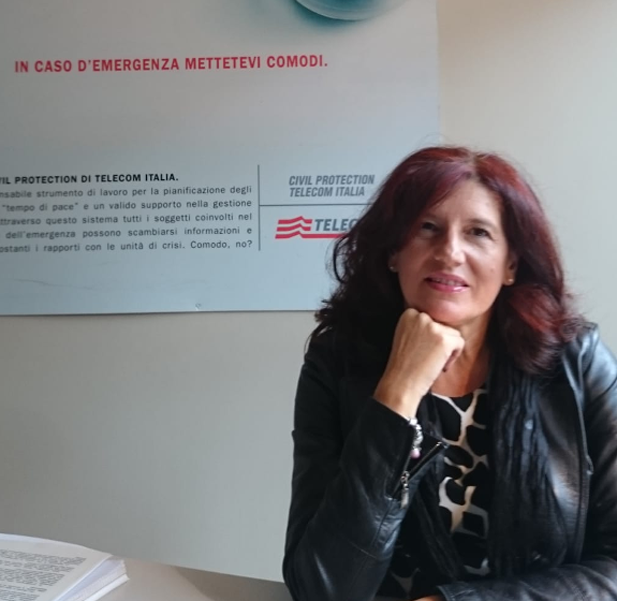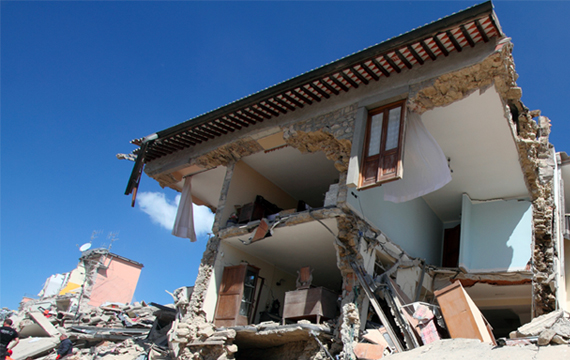When the coronavirus emergency broke out, how and when were you called on for a contribution from TIM?
This emergency began in a very different way to the others: we went through a pre-emergency phase that allowed us to alert the entire organisation of our Crisis Management system from the moment that the first news of infection in China reached us.
On 31 January, when a state of national emergency was declared, I also participated in the Operational Committee convened by the Head of the Civil Protection Department Angelo Borrelli, chaired by Prime Minister Giuseppe Conte, with Health Minister Roberto Speranza. The meeting saw participation from all member organisations of the national Civil Protection Service, local bodies and providers of “essential services” for crisis management, such as TIM.
What are the specific characteristics of this emergency?
Every crisis is different from others, not only because of the kind of event that triggers it, the number of parties involved or the extent of the areas affected, but also because of the duration and number of critical cases that follow one another to become “emergencies within emergencies”.
Some of the particular characteristics of this situation are that it is not restricted to one geographical area – it affects the whole world – and that the post-emergency phase will certainly be much more complex than those we have experienced in the past.
Could you tell us how the crisis has progressed and what main measures were taken to manage it?
As soon as the emergency began, we activated the Defence and Civil Protection Operational Crisis Teams, TIM’s internal territorial crisis units made up of colleagues from departments essential in managing the situation. These teams operate in accordance with the strategic policy of the Crisis Management Committee, chaired by CEO Luigi Gubitosi, which met and continues to meet.
Our CEO has followed the development of the emergency constantly, giving a broad remit to the Departments involved. From the outset, we worked to ensure
• continuity and quality of service for the public, schools, businesses and institutions, and for the system of the country as a whole
• the greatest safeguards for the health of all Group employees.
We initially involved our Lombardy and Veneto teams, where the first “red zones” had been established. We involved all those of other regions immediately afterwards, when it became clear that the infection would spread. In particular, I recall the intense days of the weekend of 22 and 23 February, when I worked with the operational committee from early morning well into the evening, constantly distributing both the initial protective and preventative instructions for workplaces issued by the Ministry of Health and the institutional requests made to our crisis units. The “red zones” quickly gave way to larger quarantined areas and then nationwide lockdown; The epidemic was declared a pandemic on 11 March.
As with every emergency, you lose track of time and work without stopping with the sole aim of overcoming the crisis to the best of your ability, giving reliable, clear and concise answers and resolving all the problems that emerge over time, also through collaboration with other public and private organisations.
In these situations, dialogue with other “essential services” companies is fundamental: the interdependence of strategic infrastructure is actually a critical factor that should always be monitored.
How is the team of TIM people who have worked on this emergency with you made up?
Managing any emergency is always a great team effort, whether inside the company – with coordinated assistance from various sources of specialist expertise, many operational structures, emergency equipment with state-of-the-art technology, operational rooms and dedicated instruments – or outside it, because our interventions have to complement those of the other teams that make up the National Civil Protection Service. The fear of having to face an unprecedented crisis, which we’ve all experienced, was held in check by the knowledge of working with a trained and united team, capable of altering operational responses in accordance with the difficulties to be overcome.
Our colleagues in Human Resources and Organisation have played a vital role in this crisis with regard to all aspects of safety at work, organising and managing TIM’s staff and relations with trade union representatives.
How have network operation and communication services proved essential in this emergency?
Communication is essential in any crisis situation, for response staff, the public, institutions and other providers of services that, like ours, contribute to overcoming a state of emergency. Communication allows rapid response, targeted intervention and the sharing of information and data that may contribute to saving human lives.
In this emergency, the need to communicate is even stronger than in other cases. TIM’s infrastructure and services are also essential for those in hospital, so that they can communicate and maintain their emotional connection with their family; for many people working from home; for students in order to keep studying and take exams; for elderly people isolating at home to stay in touch with their children, grandchildren, care facilities and voluntary associations; for institutions and the media; for people of faith in order to maintain a connection with their religious community; for the structures of public administration; for all of us as members of the public, in order to maintain contact with our community at a civic and social level and bear up after so many days of social distancing under a difficult, if not dramatic, daily existence. The essential quality of communication services has never been so evident in any other emergency.
What critical issues did you encounter during this emergency?
Various issues. The most evident, perhaps, was having to learn and adopt new preventative behaviour over a very extended period, to protect the health of both others and ourselves, in our personal and working lives, and translate instructions from experts into organisational measures and operating instructions for the different areas of the company. This applies in particular to our technicians, who have to be able to intervene 24 hours a day in complete safety throughout the country, and colleagues in contact with the public in stores.
Can experiencing and managing such a specific emergency provide a useful lesson for the future?
Many crisis managers maintain that the ability to overcome disasters comes from having imagined, described and experienced them before. The exercise of thinking the unthinkable helps with emergency planning. Once the crisis has been dealt with, the results from analysis and debriefings are needed to identify any areas for improvement, update plans and tools and keep us all in readiness.
At TIM, we too will continue to perfect this crisis management system constantly, which is flexible, modular, interdepartmental and able rapidly to identify the best set-up for facing even situations that have never been encountered before, such as our current one. In the planning stage, dedicating time and resources to exercises regarding different types of risk will be decisive, always in collaboration with institutions, also at international level.






